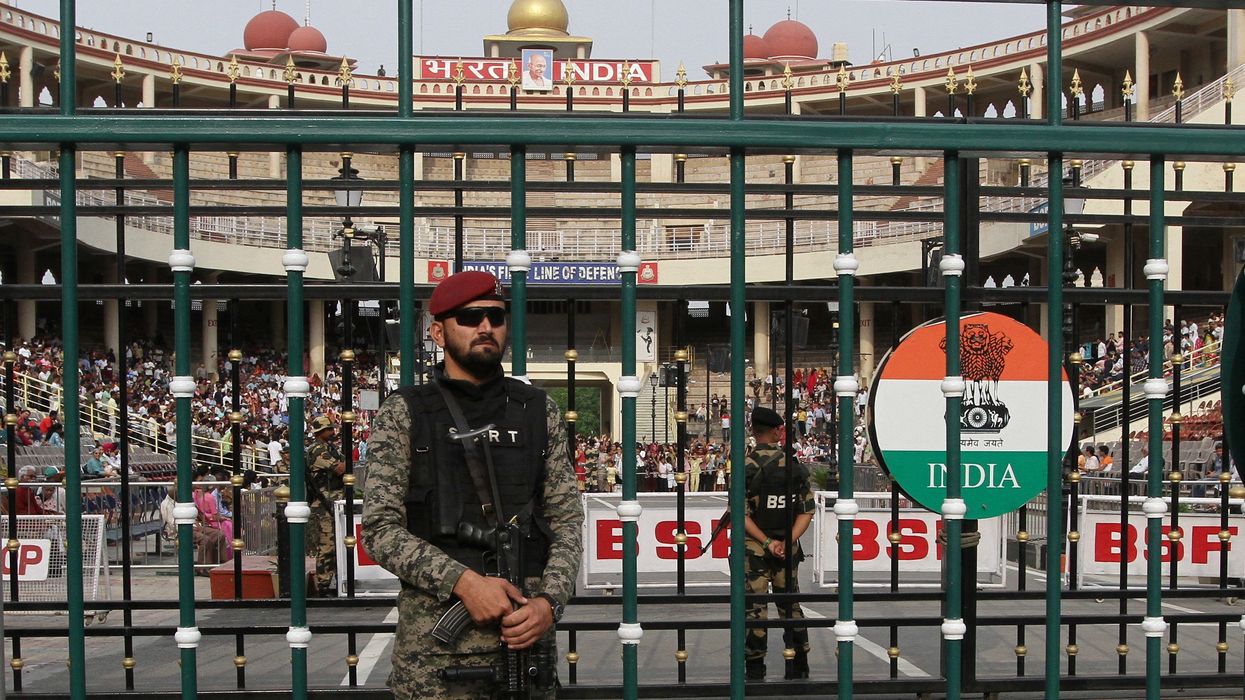PAKISTAN conducted a second missile test and India announced civil defence drills as tensions escalated over Kashmir following an attack on Hindu tourists last month. The United Nations and other global powers have called for restraint between the nuclear-armed neighbours.
The Pakistani military said on Monday it tested a surface-to-surface missile with a range of 120 kilometres. The launch was described as an effort to ensure the operational readiness of troops. This follows a previous missile test on Saturday of a weapon with a range of 450 kilometres. Pakistan has not disclosed the locations of either test.
India's information ministry officials said civil defence mock drills will take place on Wednesday to prepare people to "protect themselves in the event of a hostile attack". Drills will include sounding air raid sirens and evacuation plans in several states.
ALSO READ: India begins hydro work after suspending Indus Waters Treaty: Report
Indian officials blame Pakistan for supporting the April 22 attack in Pahalgam, where 26 mostly Hindu men were killed in the deadliest incident against civilians in Indian-administered Kashmir in years. prime minister Narendra Modi said India will "identify, track and punish every terrorist and their backer" and "pursue them to the ends of the Earth."
Pakistan has denied involvement and said it is fully prepared to respond to any attack. "Any act of aggression will be met with a decisive response," the government said. No group has claimed responsibility for the shooting, but Indian police are seeking at least two Pakistani citizens they say were among the gunmen.
ALSO READ: India halts Pakistan imports as tensions rise over Kashmir killings
Gunfire exchanges have occurred nightly since April 24 along the Line of Control, according to the Indian army.
On Monday, UN secretary-general Antonio Guterres said relations between India and Pakistan had reached a "boiling point". He urged both sides to show "maximum restraint and step back from the brink" of war.
Iran’s top diplomat Abbas Araghchi visited Islamabad on Monday for talks with prime minister Shehbaz Sharif and is scheduled to visit India on Thursday. Iranian foreign ministry spokesperson Esmaeil Baqaei said, "We will spare no effort to help de-escalate the situation between the two countries."
ALSO READ: India wants Kashmir attackers brought to justice, Jaishankar tells US
Sharif cancelled a scheduled visit to Malaysia on Friday, saying the missile launch "clearly shows that Pakistan's defence is in strong hands".
India and Pakistan both claim the Muslim-majority region of Kashmir in full. A separatist insurgency has been active in the Indian-administered part since 1989, with India accusing Pakistan of backing terrorists behind the violence. Islamabad denies the charges.
ALSO READ: India and Pakistan’s military strength compared amid Kashmir tensions
The UN Security Council discussed the Kashmir situation on Monday at Pakistan's request. Pakistan’s foreign ministry said Council members called for "dialogue and diplomacy to diffuse tension and avoid military confrontation". It also said intelligence indicated an "imminent threat" of action by India.
India’s foreign ministry did not immediately comment on the meeting. An Indian source familiar with the discussions said several Council members viewed Pakistan’s missile tests and nuclear statements as "escalatory". The source added, "Pakistan's efforts to internationalise the situation also failed. They were advised to sort out the issues bilaterally with India."
Russia's Kremlin spokesperson Dmitry Peskov said on Monday, "We are following with great concern the atmosphere that has developed on the border", and urged both countries to reduce tensions.
US vice president JD Vance said India should respond in a way "that doesn't lead to a broader regional conflict", and urged Pakistan to "make sure that the terrorists sometimes operating in their territory are hunted down and dealt with".
ALSO READ: Pakistan says it has credible intelligence of imminent Indian military strike
On the Indian side of Kashmir, a large-scale manhunt is underway to find the gunmen behind the Pahalgam attack. Residents near the Line of Control are preparing bunkers or moving away.
In Pakistan-administered Kashmir, emergency drills are being held, religious schools have closed, and residents have been advised to stock up on food and medicine.
Following the attack, both countries have taken retaliatory measures, including suspending trade, shutting airspace, halting a key water treaty, and reducing embassy staff.
Moody’s has warned that the standoff could affect Pakistan’s $350-billion economy, which is still recovering from a 2023 debt crisis. It added that increased defence spending may also impact India’s fiscal consolidation.
(With inputs from agencies)





